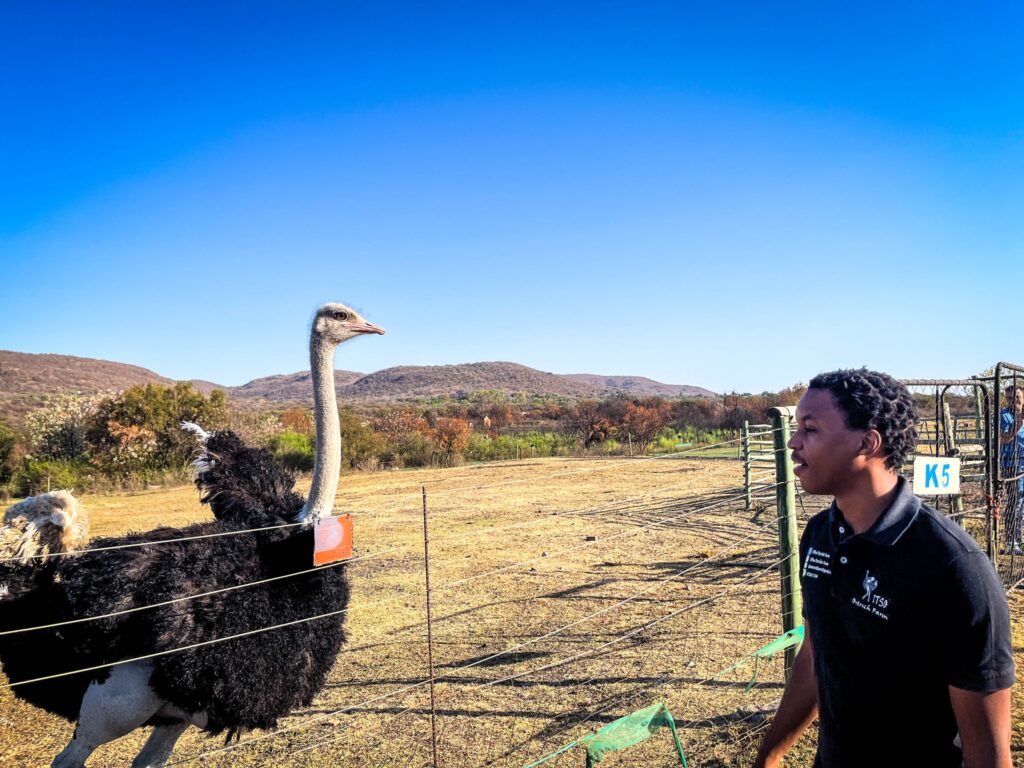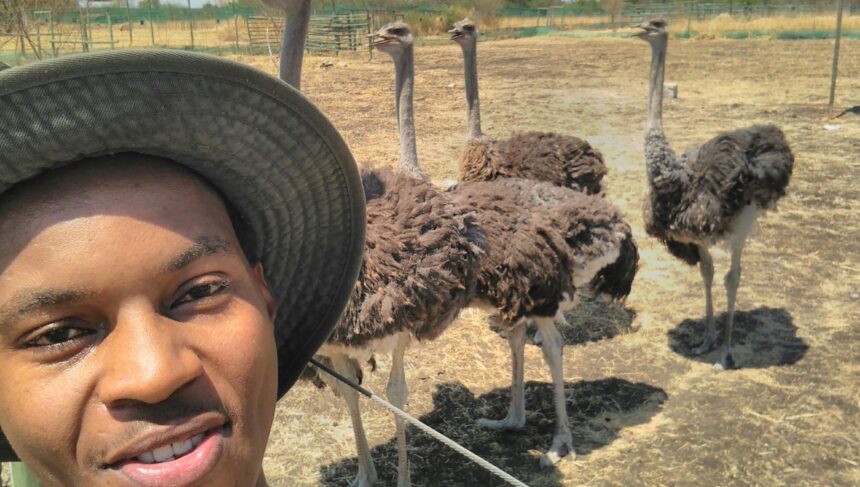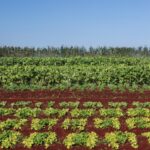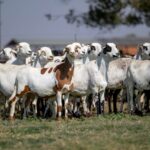“From Setbacks to Success: Kabelo Lekalakala’s Fight to Transform Ostrich Farming in South Africa”
For Kabelo Lekalakala, the journey to establishing a thriving ostrich farm has been anything but smooth. The 35-year-old farmer from Brits in the North West is on a mission to break into South Africa’s lucrative ostrich industry—a space historically dominated by white farmers in the Western Cape. Here’s his inspiring story of resilience and determination.
Hatching the Dream
Kabelo’s journey began in 2019 after an eye-opening encounter while working as an Enterprise Development Practitioner in Oudtshoorn, a town famed for its ostrich farming. A client with extensive knowledge in tanning ostrich leather sparked an idea that would change his life.
“This client was producing luxury goods like bags and belts from ostrich leather. When I realized the shortage of ostriches to sustain his work, it hit me—I needed to become an ostrich farmer to fill that gap,” he recalls.
Driven by this vision, Kabelo relocated to Brits with 17 ostrich chicks, each costing R3,500. He converted his family’s chicken house to accommodate the birds, armed with little more than Google searches for guidance.
The Harsh Reality
Two months in, Kabelo faced his first major hurdle. Without proper infrastructure, some of the chicks died, threatening his fledgling venture. But this setback only fueled his determination.
“My goal was to dispel the myth that ostriches can only thrive in the Western Cape,” Kabelo says, convinced that the birds could adapt to his hometown’s climate.
To scale his business, Kabelo sold his car to improve his credit score and secured a five-hectare farm through a bond. The financial strain has been immense, with 60% of his salary going toward the bond alone, not to mention rising electricity costs, water tests, and the expenses of feed and medication.
The Struggle for Support
Kabelo’s challenges extend beyond finances. As a black farmer in a predominantly white-controlled industry, he highlights the lack of government support and the bureaucratic hurdles of compliance.
“Unlike white farmers in the Western Cape, emerging black farmers face an uphill battle when it comes to accessing resources and funding,” Kabelo laments.
Despite his efforts to reach out to the Department of Agriculture, Land Reform, and Rural Development, Kabelo has yet to secure the assistance he desperately needs.

Building Toward the Future
Currently, Pitso Ostrich Farm is home to 13 black-neck ostriches, with revenue coming from selling ostrich eggs. While this is not yet profitable, Kabelo is exploring the potential of ostrich tourism as a future income stream.
“I believe there’s an opportunity to educate people about these incredible birds while creating a sustainable business model,” he says.
A Call for Change
Kabelo’s story is one of grit and hope, but it also highlights the systemic challenges faced by emerging black farmers in South Africa. He dreams of a day when ostrich farming is not only profitable for him but also accessible to others from diverse backgrounds.
To support Kabelo or learn more about his venture, visit Pitso Ostrich Farm on Facebook or email him at pitsoostrichfarm@gmail.com.
”
Join 'Farmers Mag' WhatsApp Channel
Get the latest Farming news and tips delivered straight to your WhatsApp
CLICK HERE TO JOIN






